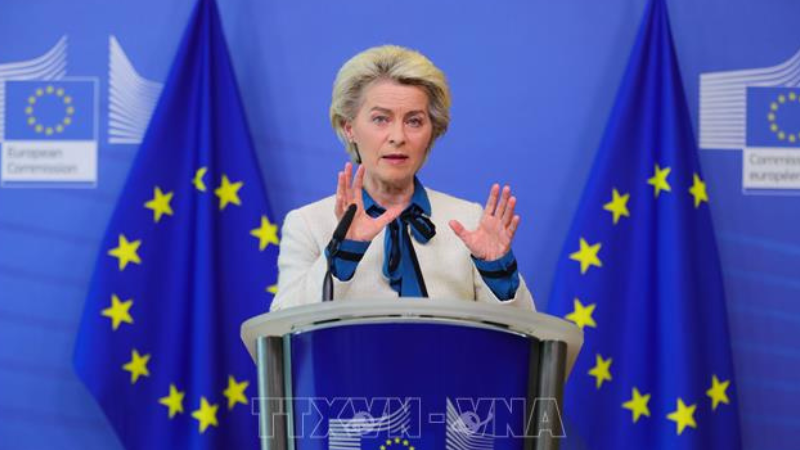This marks a significant increase compared to the 1.21 trillion EUR budget approved in 2020. EU member states aim to mobilise substantial resources to realise ambitions of enhancing strategic independence and strengthening the bloc’s capacity to respond to global challenges.
With three main pillars, this EU budget has been restructured to focus on strategic issues.
The first pillar, named “National and Regional Partnerships,” allocates 865 billion EUR to agricultural, fisheries, cohesion, and social policies, aiming to ensure harmonious development across the bloc’s territories.
The second pillar earmarks 410 billion EUR to boost competitiveness through investments in research, innovation, and technology, helping consolidate the EU’s economic position amid fierce global competition.
The third pillar focuses on foreign policy, with a total value of 200 billion EUR, including 100 billion EUR for supporting Ukraine’s reconstruction and integration.
A noteworthy point is that all spending will be tightly tied to compliance with conditions on the rule of law.
Leyen emphasised that this is a budget for a new era, aligned with Europe’s vision, helping address common challenges and reinforce the bloc’s strategic autonomy. She also pledged to ensure transparent and accountable public spending.
An important new element of this budget is the establishment of a 410 billion-EUR European Competitiveness Fund, aimed at encouraging private investment and optimising public spending efficiency, with the goal of modernising the economy and enhancing sustainable growth.
The budget also allocates 292 billion EUR for other items, including debt repayments related to the post-COVID-19 recovery fund, with estimated annual repayments of 25–30 billion EUR.
The EC proposes covering these payments through new financial resources from carbon taxes, customs duties, and EU-wide common taxes.
However, the proposals still face opposition from some member states. The new budget proposal reflects efforts to enhance the EU’s flexibility and adaptability in the face of major internal and external changes.
The EU has also set out a roadmap for building necessary defence capabilities to protect its citizens, uphold the Union’s core values, and improve responsiveness to increasingly rapid and unpredictable geopolitical changes.
As part of the strategy to strengthen defence capabilities — with key goals including realising the Readiness 2030 plan and implementing the European Rearmament initiative — the EU has announced new regulations to accelerate defence investments within the bloc’s common budget framework.
The package amending existing funding programmes will focus on expediting, making more flexible, and strengthening coordination in investments for Europe’s defence industry and technology.
The EU is also investing heavily in developing green technology projects, reinforcing the Old Continent’s leadership role in the global industrial transition toward carbon neutrality.
To actively contribute to sustainable development goals and build a clean European industry, the EC and the European Investment Bank (EIB) recently signed a key agreement to extend and expand the Project Development Assistance (PDA) Programme, with its budget sharply increased from 24 to 90 million EUR.
With this new budget proposal, the EU has officially launched a negotiation process expected to be lengthy and contentious among member states and the European Parliament. The parties will need to balance individual interests with shared goals to secure a solid financial framework for Europe’s future.
















